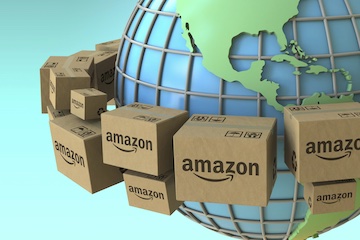Amazon aggregators purchase and attempt to develop the companies of market sellers. Throughout Covid, aggregators thrived amid brick-and-mortar shutdowns, attracting large quantities of capital. However final yr many aggregators encountered monetary headwinds.
Whereas the acquisitions slowed solely barely in 2022, ecommerce gross sales declined owing to shoppers returning to in-person procuring. Exacerbating the issue are Amazon’s vendor price will increase, rising by greater than 30% since 2020 and placing a dent in aggregator income. Some are actually shedding workers, merging with different aggregators, and on the lookout for new methods to generate income.
Funding
Based on CB Insights, after peaking at simply over $6 billion in 2021, world funding to Amazon aggregators declined by 88% in 2022, and simply 5 funding offers closed within the first 5 months of 2023.
About 75% of the funds aggregators have obtained are loans, not fairness investments — for acquisitions, not operations. Most of that cash is unused as a result of some bigger aggregators have stopped acquisitions. Many aggregators pay as a lot as 18% curiosity on these loans. Some can’t meet their debt funds.
Aggregators generally provide retailers incentives past the acquisition value after they purchase the enterprise. Nevertheless, over the previous yr promised efficiency earn-outs didn’t at all times materialize as a result of gross sales didn’t attain the edge and even declined. Two aggregators — SellerX and Perch — have been sued for not honoring their contracts with the promoting corporations. SellerX was accused of not selling a model it purchased.
Some homeowners that promote to aggregators keep round to assist. However most transfer on to one thing new, counting on the aggregator to generate income for efficiency payouts.
Consolidation
There are at present 93 lively world Amazon aggregators in accordance to Market Pulse. Aggregators are addressing the slowdown in funding and lowered income in varied methods. The highest 25 by means of Could 2023 are:
- Thrasio. Walpole, Mass., $3.4 billion
- Berlin Manufacturers Group. Berlin, Germany, $1.3 billion
- Razor Group. Berlin, Germany $1.1 billion
- Perch. Boston, Mass., $908 million
- Heyday. San Francisco, $800 million
- Dragonfly. Boston, Mass., $500 million
- Merama. Mexico Metropolis, $445 million
- Growve. St. Petersburg, Fla., $400 million
- Benitago Group. New York, $380 million
- Boosted Commerce. Los Angeles, $380 million
- Moonshot Manufacturers. Oakland, Calif., $340 million
- Unybrands. Miami, Fla., $325 million
- GlobalBees. New Delhi, India $296 million
- The Ambr Group. New York, $273 million
- Heroes. London, U.Ok., $265 million
- Cap Hill Manufacturers. Seattle, $250 million
- Monolith Manufacturers Group. New York, $230 million
- Mensa Manufacturers. Bangalore, India, $218 million
- Society Manufacturers. Canton, Ohio, $204 million
- Accel Membership. Amsterdam, The Netherlands, $170 million
- Olsam Group. London, U.Ok., $165 million
- Acquco. New York, $160 million
- Nebula Manufacturers. Beijing, China. $156 million
- Branded. Paris, France. $150 million
- Intrinsic. New York. $128 million
Earlier this yr California-based Boosted Commerce laid off 20% of its workers. Main aggregator Thrasio laid off an undisclosed variety of staff final yr, and the corporate’s new CEO Greg Greeley instructed Forbes journal that Thrasio incorrectly assumed ecommerce demand would stay at pandemic-era ranges. Greeley mentioned Thrasio needed to “recalibrate expectations” and guarantee it’s not holding extreme stock or providing too-high acquisition costs. Analysts have asserted aggregators overpaid for a excessive proportion of the service provider manufacturers.
Now aggregators are buying one another, usually on a world stage. In Could, Berlin-based SellerX purchased Austin-based Elevate Manufacturers. Collectively the businesses may have 80 Amazon market manufacturers and annual gross sales of $426 million. In April, Razor Group acquired Stryze, two Germany-based aggregators.
Earlier this yr two smaller U.S. aggregators merged — Suma and D1 Manufacturers. The mixed enterprise, now known as The Ambr Group, operates a portfolio of greater than 30 companies, producing over $100 million in annual income.
Enterprise Mannequin Adjustments
The premise of the aggregation mannequin is that it ends in economies of scale and extra advertising experience and assets. Initially, as soon as bought by aggregators small manufacturers did see a surge in gross sales however a lot of that probably was attributable to the Covid-19 shift to ecommerce. As soon as bodily shops re-opened, ecommerce development stalled, and small sellers appeared much less enticing to patrons. The estimated valuations of small sellers plummeted, inflicting some aggregators to pause acquisitions.
Now roll-up corporations are realizing that rising solely by means of acquisitions shouldn’t be at all times sustainable. Some are launching their personal manufacturers quite than buying present ones.
Few limitations to entry exist within the aggregator business. The long-term worth of present corporations can decline if the merchandise they promote are commodities. In a crowded market, solely aggregators with flawless execution and distinctive merchandise will probably survive.

